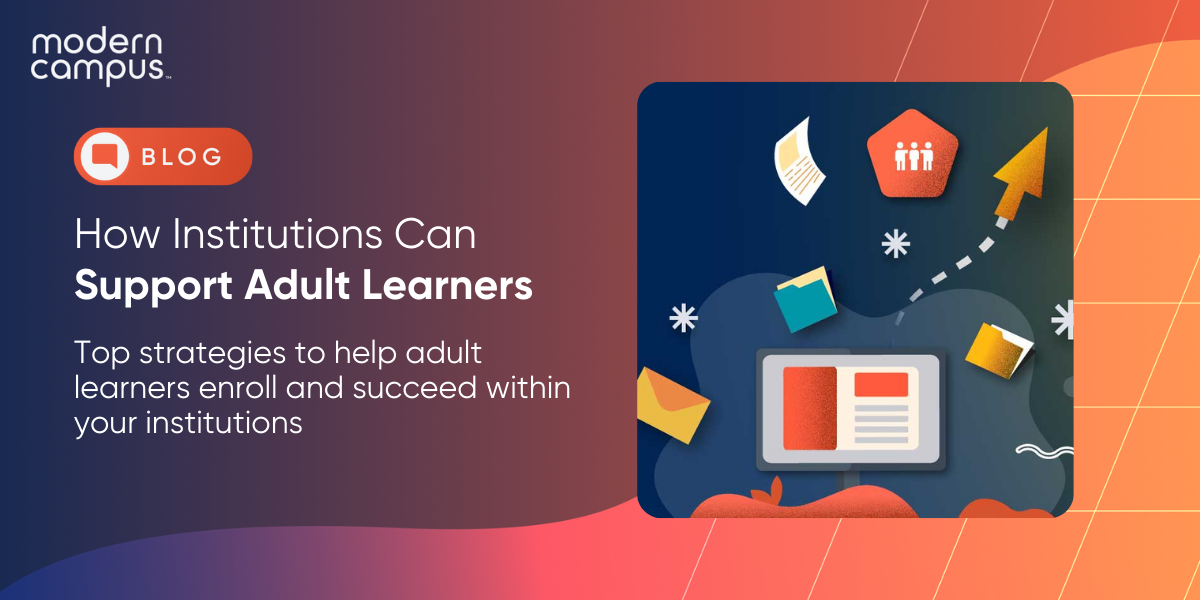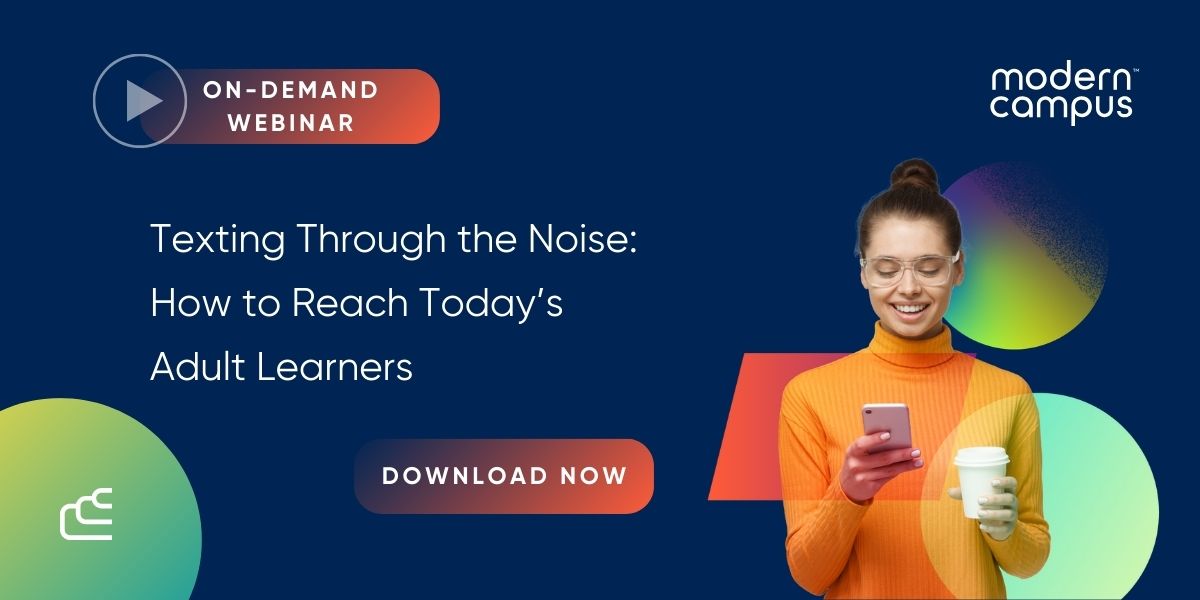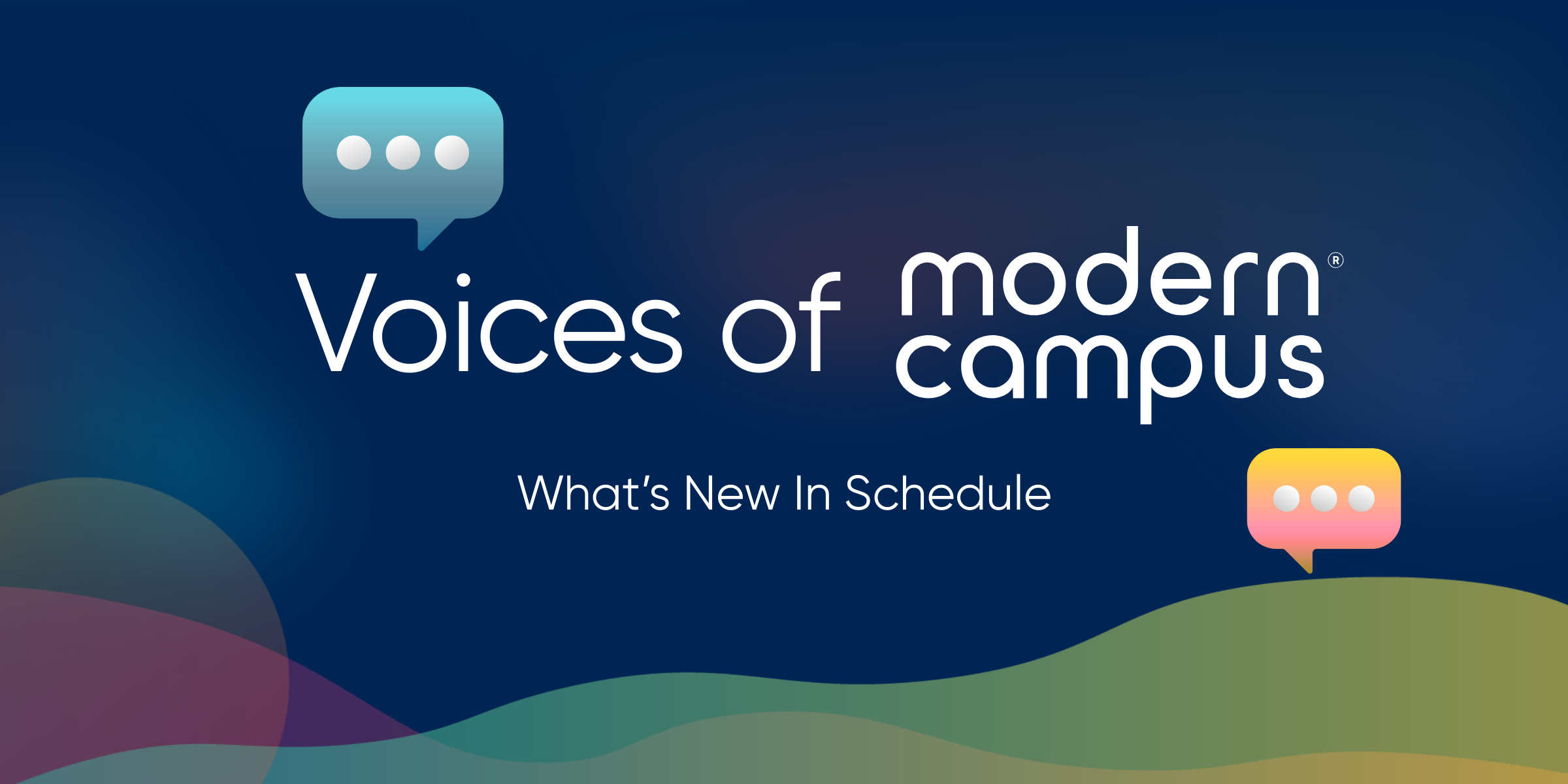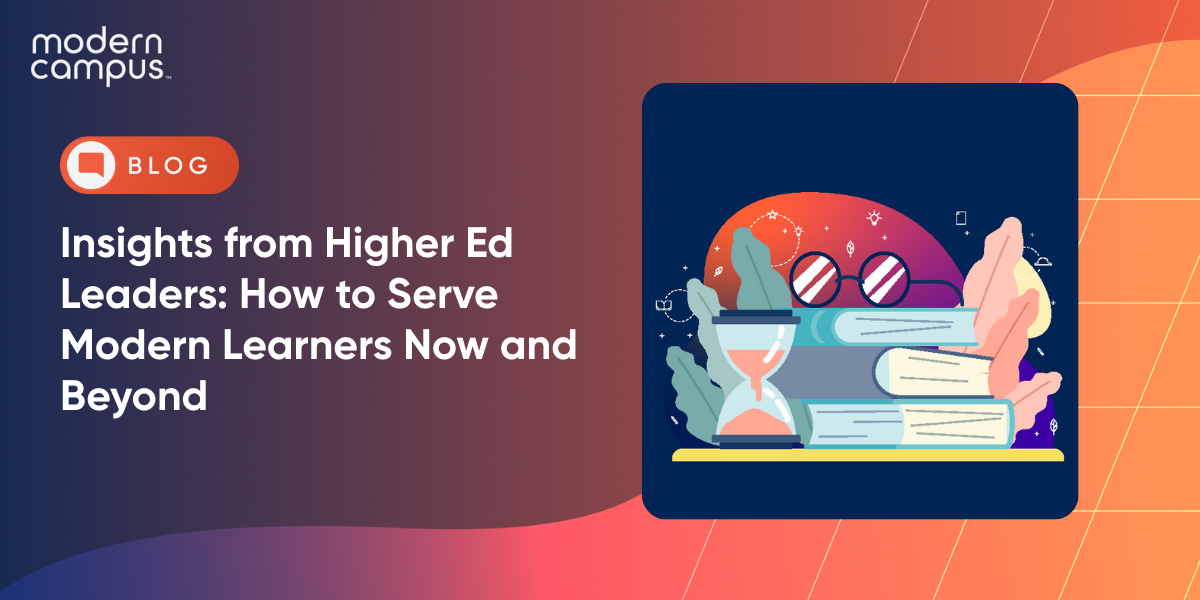Empowering Adult Learners through Education Programs
With the large number of adult learners emerging in the higher ed space, institution leaders need to take note of this new audience. Adult education programs have emerged as a crucial avenue for individuals seeking personal and professional growth.
To help meet the needs of these learners, it’s critical to understand and prioritize who these learners are, what challenges they face, and how to help, support, and empower them at every stage of their educational journey.
Adult Education Programs
Adult education programs encompass a wide array of options that cater to adult learners' diverse needs and goals.
- Professional development courses provide targeted training and workshops to enhance specific skill sets required in the workforce.
- Degree completion programs enable adults to fulfill their aspirations of obtaining undergraduate or graduate degrees, opening up new avenues for career advancement.
- Continuing education courses, also referred to as workforce development courses, offer short-term learning modules across various disciplines, keeping learners updated with the latest knowledge and practices.
- Online courses have gained immense popularity, providing flexibility and convenience for adult learners who juggle work, family, and other commitments.
Characteristics of Adult Learners
Understanding the unique characteristics of adult learners is crucial for designing effective educational programs.
Most adults are highly self-directed and motivated to learn. They bring a wealth of life experience and prior knowledge to the learning environment, so they can be very goal oriented. Practical, relevant, and immediately applicable learning experiences that align with their personal or professional goals are often preferred. With different learning styles and preferences, adult learners need flexible and adaptable curriculum designs.
Challenges of Adult Education
Although adult education programs offer numerous benefits, adult learners face distinct challenges that may prevent them from succeeding in their educational programs.
- Balancing work and family responsibilities with education can be daunting, requiring effective time management and support systems.
- Financial constraints often pose significant barriers, as many adult learners have existing financial obligations and may not qualify for traditional student financial aid.
- Lack of confidence and difficulty adjusting to the academic environment can hinder their progress.
- Adjusting to an academic environment makes motivation crucial, as sustaining it throughout the learning process can be challenging.
- Overcoming the fear of technology is another obstacle as technological advancements continue to shape the educational landscape.
- Leveraging technology in educational programs enhances accessibility and flexibility for adult learners. Technology in adult education provides flexible learning options and improves communication through online platforms and personalized learning experiences. Adult learners can access education anytime, anywhere, collaborate with peers and instructors, and receive personalized recommendations for further learning based on their goals and progress.
How Higher Education Institutions Can Support Adult Learners
Higher education institutions play a pivotal role in supporting and empowering adult learners, also known as non-traditional students.
By implementing specific strategies, these institutions can effectively address adult learners' unique needs.
- Recognition of prior knowledge and experience: Acknowledging and valuing the expertise and experiences that adult learners bring to the table is essential. Providing opportunities for credit transfer or assessment of prior learning can accelerate the learning process. This is where competency-based education comes into play.
- Tailoring education to individual goals: Offering customized educational pathways that align with adult learners' individual goals and aspirations enhances engagement and motivation. Course selection and program structure flexibility enable learners to tailor their education to their specific needs.
- Cultivating lifelong learning habits: Fostering a culture of lifelong learning encourages adult learners to seek knowledge beyond formal education continually. Offering resources like libraries, learning centers, and online platforms enables learners to access information and continue their learning journey.
- Flexible scheduling options: Recognizing adult learners' diverse commitments, institutions should provide flexible scheduling options, including evening or weekend classes, part-time programs, and online learning opportunities. This flexibility allows learners to balance their educational pursuits with other responsibilities.
- Financial aid and scholarships: Institutions should strive to offer financial aid packages and scholarships specifically tailored to adult learners. These initiatives alleviate financial burdens and ensure that everyone has equitable access to education.
- Support services: Comprehensive support services, such as academic advising, counseling, and career guidance, are vital for adult learners. These services help learners navigate challenges, providing the necessary resources and guidance for success.
- Inclusive environment: Creating an inclusive and supportive environment that fosters collaboration and networking among adult learners is crucial. Peer support groups, mentoring programs, and networking events can facilitate connections and enhance the overall learning experience.
- Focusing on skill development: Skill development is critical as the workforce rapidly evolves. Recognizing the practical needs of adult learners, institutions should prioritize the development of transferable and applicable skills. Incorporating hands-on learning experiences, internships, and real-world projects cultivates skills that are relevant to the workforce.
- Facilitating active learning: Active learning methodologies, such as group discussions, case studies, and problem-solving activities, encourage engagement and enhance the learning experience for adult learners. Creating opportunities for active participation and collaboration fosters deeper understanding and retention of knowledge. Providing learning resources can also promote learning longevity.
- Providing feedback: Regular and constructive feedback is essential for adult learners to gauge their progress and make improvements. Timely feedback from instructors and peers allows learners to refine their skills and knowledge.
Conclusion
Adult education serves as a catalyst for personal and professional growth, catering to the unique needs of non-traditional learners. Higher education institutions play a pivotal role in supporting these learners by recognizing their characteristics and challenges while providing tailored support.
Structure, support, and curriculum must be designed for adults. As institutions embrace the diverse needs of adult learners, they contribute to the cultivation of a society that values and nurtures lifelong learning for all.
Last updated: February 19, 2024





